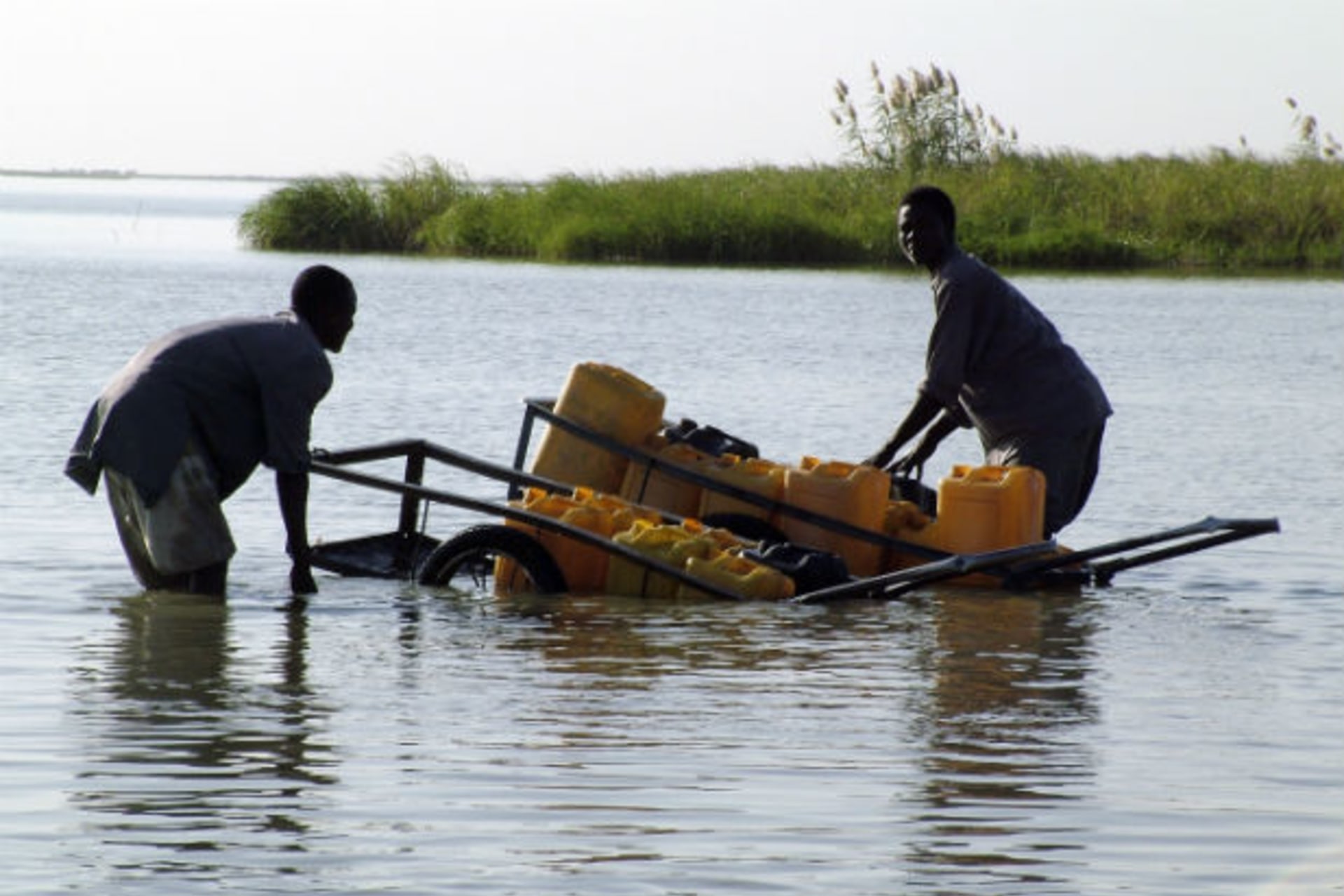Guest Post: Lake Chad Shrinks, Conflict Grows

By experts and staff
- Published
By
- Guest Blogger for John Campbell
This is a guest post by Laura Dimon. Laura is the Africa program intern at the Council on Foreign Relations.
Earlier this week, the New York Times detailed the impact of Niger’s desertification on children, who must trek longer and longer distances to collect water. This is only one of the negative consequences of climate change that has hastened the drying up of the Lake Chad water basin. Over the last forty years, the water basin, which has supported up to thirty million beneficiaries across Nigeria, Chad, Cameroon, and Niger, has shrunk by 95 percent. The lake’s shrinkage is the result of a myriad of factors: decreased rainfall resulting from climate change, increased demand for water caused by population growth and agriculture, an explosion of parasitic vegetation, and weak institutions managing competing demands.
The water shortage strains inhabitants of the region and promotes interstate and intrastate conflict. In northeastern Nigeria, the region adjacent to Lake Chad, Fulani herders have been forced further south in search of new pastures. This has put them into conflict with farmers facing similar resource limitations, and fishermen, too, who are competing with both farmers and herders over water diversion.
The conflict extends past national borders. Starting in the 1980s, the rapid recession of the lake drew Nigerian fishermen further into Cameroonian territory, leading to several military encounters. By the 1990s, more than thirty Lake Chad villages founded by Nigerians were counted in Cameroon. In 2002, the resulting border dispute went to the International Court of Justice, which settled in Cameroon’s favor. But the real problem still remains: there is not enough water to go around and only weak institutions to protect what is left.
Recently, President Goodluck Jonathan and his Water Resources Minister Sarah Reng Ochekpe called for concerted efforts to save the lake, while marking May 22 “Lake Chad Day” in Abuja. But it remains to be seen if these declarations will translate into action.
As it stands, farmers and herders competing for water sounds uncomfortably reminiscent of the crisis in Darfur.